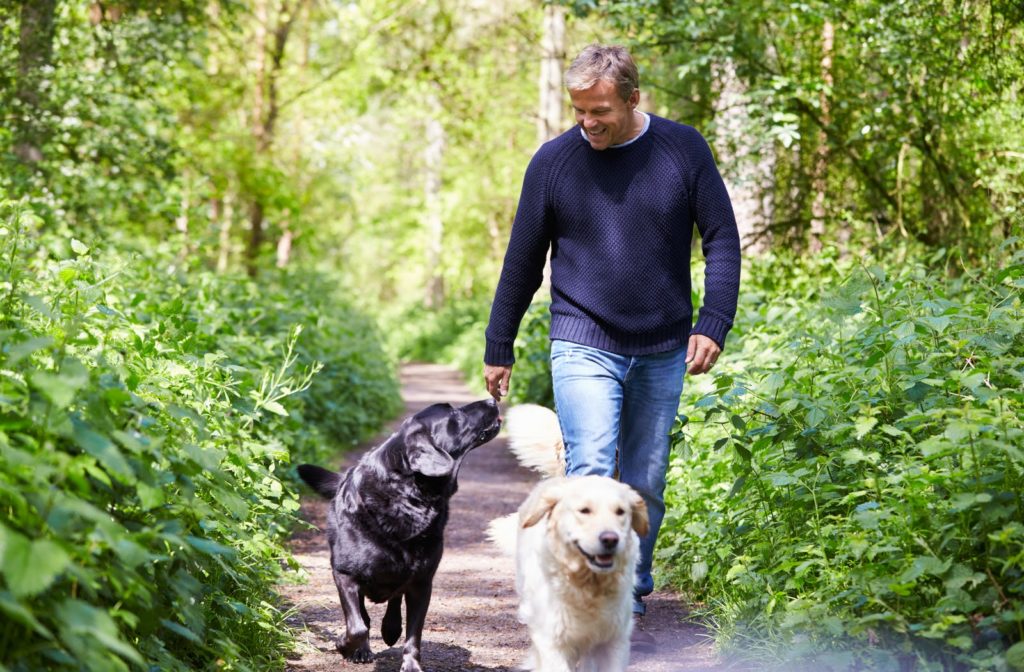There is no one right way to stay sober, and tools from mindfulness to faith can help those in recovery. In general, however, the best relapse prevention plan is to create a life worth living. People with hobbies tend to have better physical and mental health, both key components to staying sober. Hobbies provide a wealth of benefits from simply taking up your time to giving your life purpose again.
What is Considered a Hobby?
A hobby is essentially anything you do for pleasure that is not your job (although for some, a hobby can turn into a job down the road). Hobbies can be:
- Physical (team sports, jogging, hiking, etc.)
- Mental (learning a new skill, learning a language, reading, etc.)
- Artistic (drawing, painting, music, etc.)
- Adventurous (rock climbing, traveling, mountain biking, etc.)
The options for hobbies are endless, and many hobbies don’t require money or prior experience.
It is also important to be mindful of the environmental triggers that can arise when taking part in activities associated with substance-use. When getting into a new hobby or activity, it may be helpful to seek accountability and support.
Why Hobbies Help You Stay Sober
Avoid Old Routines & Habits
One of the keys to staying sober is creating a new life for yourself, which means new routines and habits.
Hanging out at the same places with the same people can create a situation where you’re tempted to relapse. Sobriety is a lot easier if you identify and avoid triggers, whether it’s a person, place, or thing.
Hobbies can help you create new routines that are healthier and help you avoid triggers.
Prevent Boredom
Because recovery often requires you to change your routine, it can be difficult to find a productive way to fill that time. This can lead to boredom, depression, dissatisfaction with recovery, and ultimately, relapse.
Hobbies are great because they give you a productive way to spend your time. Eventually, hobbies can give you a set schedule, which helps create structure in your life. This will help you create healthy habits that rewire your thinking and behavior towards recovery.
For example, if you create a schedule where every evening you go for a 15-minute walk, you’re a lot more likely to stick to it.
Build a Support Network
Recovery can be isolating, especially if you have friends or family still struggling with addiction. Hobbies help create opportunities to meet new people and form healthy relationships.
There is a group for almost every interest, both online and in-person. And if you meet people this way, you already have something in common to talk about.
As time goes on, your hobby can help you build a support network of people who care about you and your recovery.

Benefits of Physical Activity
Your hobby doesn’t have to be physical, but physical activities can be great tools in recovery. Physical activity, of course, has physical benefits that can help your body recover from addiction. At times cravings and urges come from depletion of dopamine, so physical activity is a way to boost feel-good hormones.
However, physical activity has mental benefits as well, including:
- Releasing endorphins (feel-good hormones)
- Relieving stress
- Reducing depression
Gain a Feeling of Accomplishment
Hobbies are a great way to build new skills. These small wins can help give you confidence and the motivation to stay sober.
That’s why many addiction recovery programs are focused on steps or pillars. The feeling of accomplishment creates momentum, which can help prevent a relapse.
Find Meaning & Purpose
Without meaning, many find recovery difficult. Often, addiction takes over your life, and when the addiction is gone, your life can feel empty.
Hobbies are a great first step in helping to fill that void with healthy behaviours.
Avoid Addiction Substitution
It can be easy to fall into old habits, even if it’s not a substance. Some people can become addicted to their hobby and let their hobby take over their life in the same way their addiction did.
For example, getting so into running to the point that you’re running all the time, not taking breaks, and injuring yourself. This is no longer a healthy hobby. This is a form of a cross-addition.
Anything healthy in life should be done in moderation. Make sure you’re not simply substituting your old addiction for a new one. Instead, use your new hobby as a way to create healthy habits and advance your recovery.



